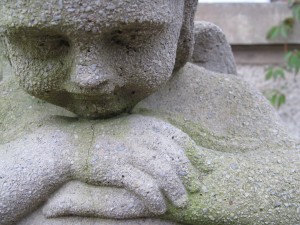“Self-compassion allows us to access a safe space of love and belonging in the midst of our imperfection because it is sourced in a Love beyond ourselves.”
My own journey toward self-compassion began with a simple observation from a passage of scripture I’ve known for a long time:
Praise be to the God and Father of our Lord Jesus Christ, the Father of compassion and the God of all comfort, who comforts us in all our troubles, so that we can comfort those in any trouble with the comfort we ourselves receive from God. 2 Cor 1:3,4
What I noticed for the first time was the fact that God’s offer of comfort puts no per-qualifiers on the source of our affliction.
If I am hurting because of my foolishness, God offers me comfort.
If I am hurting because of my sin, God offers me comfort.
If I am hurting because of my own neglect, God offers me comfort.
God’s comfort is not in response to my doing or not doing but simply to my being and my pain. The love and comfort of God are like the rain and sunshine, falling on the righteous and unrighteous, the good and the evil, the just and the unjust. (Matthew 5:43-48) In fact, that kind of God-sourced love is God’s definition of being perfect.
A few months ago, I had my first at-fault car accident in almost 40 years of driving. (Thanks be to God no one was seriously injured.) Now there may have been some mitigating factors, but when you rear end someone, it’s a pretty clear call that you’ve done something big time wrong. I was distracted by who knows what and I ran into the back of the car of a really nice guy stopped at a pedestrian crosswalk. As I stood beside the road waiting for my husband and the tow truck, it occurred to me that this was a wonderful opportunity to practice receiving the comfort and compassion of God. I had no idea how hard that would be.
As I battled this voice of self-criticism and that accusation of self-contempt, I found the image of Jesus with the woman caught in adultery coming to mind repeatedly.
The religion scholars and Pharisees led in a woman who had been caught in an act of adultery. They stood her in plain sight of everyone and said, “Teacher, this woman was caught red-handed in the act of adultery. Moses, in the Law, gives orders to stone such persons. What do you say?” They were trying to trap him into saying something incriminating so they could bring charges against him.
Jesus bent down and wrote with his finger in the dirt. They kept at him, badgering him. He straightened up and said, “The sinless one among you, go first: Throw the stone.” Bending down again, he wrote some more in the dirt.
Hearing that, they walked away, one after another, beginning with the oldest. The woman was left alone. Jesus stood up and spoke to her. “Woman, where are they? Does no one condemn you?”
“No one, Master.”
“Neither do I,” said Jesus. “Go on your way. From now on, don’t sin.” (John 8:3–11 The Message)
This woman was a sinner: no argument there from Jesus. Though there were likely mitigating factors, the fact of her poor choice was inescapable.
So, why was Jesus’ first move to stoop low and write on the ground, to physically place himself below her? Since she had been made to stand in their midst, maybe a larger target for the stones (cringe!), I cannot help but feel that Jesus lowered himself to catch her shame and terror-filled eyes.
In those days after my accident, as the shame and self-criticism tried to take hold, I sensed the same thing: Jesus kept trying to catch my eye with his. I kept seeing him kneeling on the ground beside me. I didn’t care a whit what he was writing. Just that he was there with kind eyes, trying to connect in the midst of the disconnecting forces of shame and offering comfort in the midst of the undeniable reality of my error. He was trying to help me remember that, along with everyone else on the planet, I am prone to make mistakes and bad decisions and still worthy of love and belonging just because God loves me.
As I have said before, I am a huge fan of Brene Brown. My favorite moment in all of her uber-famous TED talks was in the first one when she talked about holding a baby and instead of saying, “Oh, you are so perfect,” saying instead, “Oh you are so imperfect. And you are wired for struggle. But you are completely worthy of love and belonging.” That was what Jesus’ eyes must have said to that woman long ago and were seeking to say to me.
As Kristin Neff points out in her book, Self-Compassion, self-compassion is not the same as self-esteem. Promoting good self-esteem tends to deny the reality of our imperfection and so is, ultimately, not real and not sustainable. It also steals the healthy motivational power of true guilt (more about that in a future blog). Self-compassion, however, allows us to access a safe space of love and belonging in the midst of our imperfection because it is sourced in a Love beyond ourselves, God’s ever-present love for us. And that safe place is actually great soil for real change.
“Go on your way. From now on, don’t sin.”











